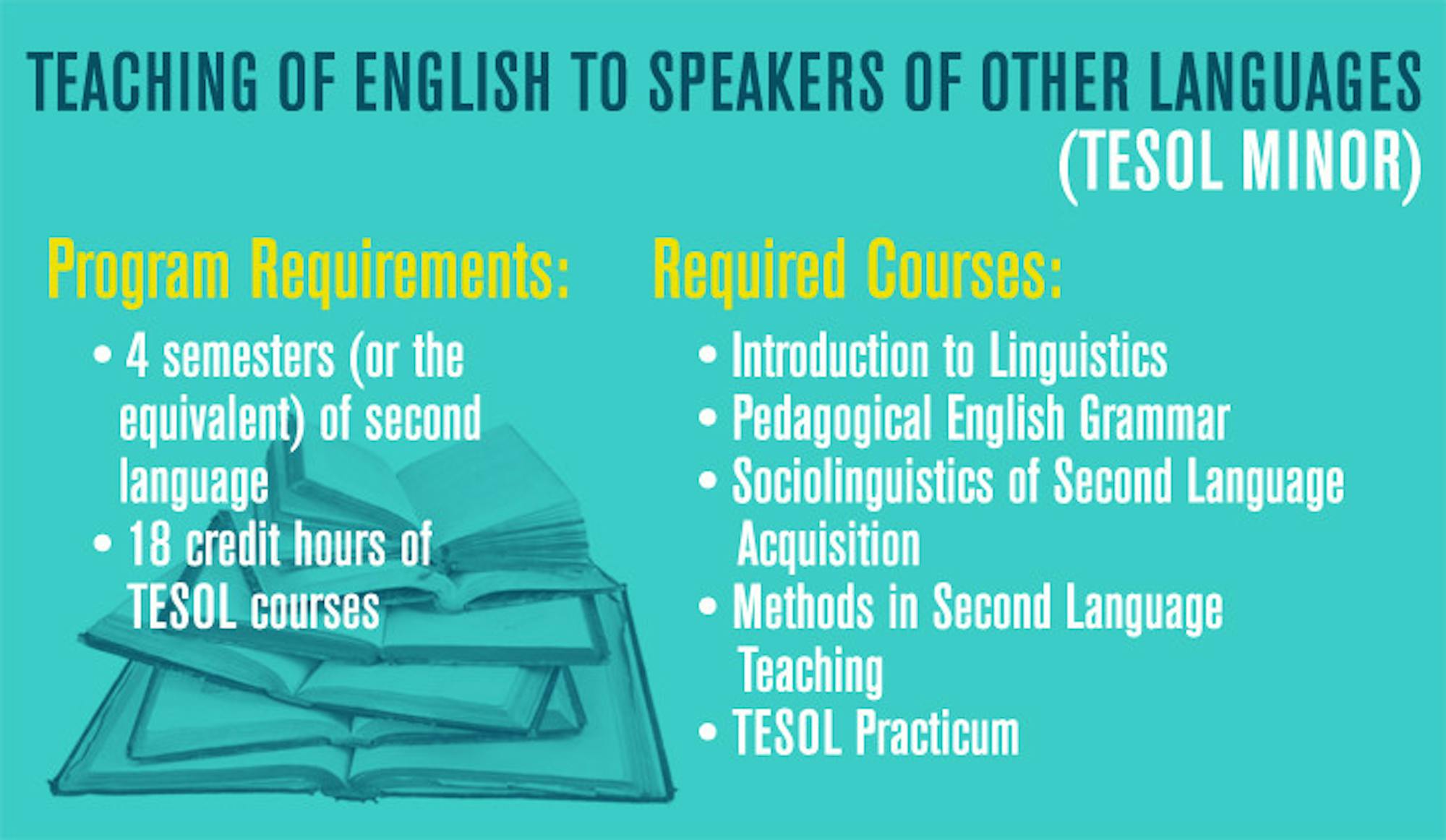The Center for the Study of Language and Culture (CSLC) has announced a new minor for the 2016 spring semester: The Teaching of English to Speakers of Other Languages (TESOL). According to Denise Ayo, assistant director for academic programs, the CSLC ran a TESOL boot camp for two years before the minor was officially announced.
Hana Kang, associate professor for second language acquisition, said TESOL is a catch-all term that includes teaching English as a second language and teaching English as a foreign language.
“There is a bifurcated idea of teaching English as a second language and teaching English as a foreign language. The difference between those is if you are teaching English as a second language, you are teaching English in an area where English is the predominant language. But, if you are teaching English in China, where the predominant language is Chinese, you are teaching English as a foreign language,” Ayo said. “With TESOL, we’re teaching students to teach English as another language, whether it’s in China teaching English as a foreign language or in America teaching English to immigrants.”
The program was fueled by student interest in teaching English to non-native speakers, Ayo said.
“Students want to perfect their second language — whether it’s German, Japanese or whatever. They want to go that that country, they want to live in that country. A good way to support yourself while you are in another country is to teach English, whether on your own or through a Fulbright English Teaching Award,” she said.
Ayo said the CSLC is responding to the amount of students applying for the Fulbright English Teaching Assistantships, and two individuals involved in the TESOL program received English Teaching Assistant Awards.
“It gives you a leg up when you’re going for Fulbright or just going to an individual country, saying you want to teach English. You can say you are trained to do that. Not only do I speak English, I understand language pedagogy, I understand language methodology, I’ve studied the theoretical backings behind it,” she said.
Ayo said as English becomes the dominant global language, more students are interested in teaching the language.
“Also, English is becoming the major language of commerce, it’s becoming the go to language for laws, money, government everything is typically done in English. So as a consequence, individuals are needing to learn English if they want to become a global player in their field. Therefore, you need individuals teaching English,” she said.
The minor is not only for those interested in teaching English, Kang said.
“It is not only for those interested in teaching a language, maybe your ultimate goal is not to be an English teacher but you are interested in learning a foreign language. You will learn the theories on how language acquisition occurs, so you can understand your own learning process and come up with a better learning strategy which fits you. So you can, by knowing that background theory, hopefully learn your foreign language better,” Kang said.
The minor is meant to be inclusive for any student who plans on interacting with non-English speakers after graduation, Ayo said.
“This is great preparation for anyone who wants to go into a teaching occupation either in the United States or abroad. Peace Corps, Teach for America, a lot of these people are going to be interacting with individuals whose native language is not English but either need the language or are interested in the language,” she said. “Whether they need it to pass their classes, or they need it to get a job, join the workforce or anything. Having this knowledge to how best to approach helping these people acquire the language. It’s not just, ‘I speak English, therefore I can teach it,’ there is a whole science behind it and a methodology that is important to learn.”













